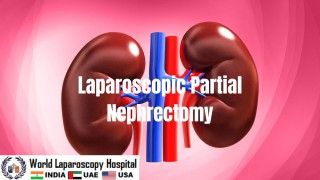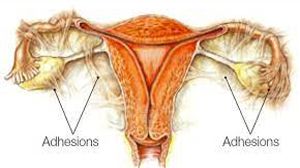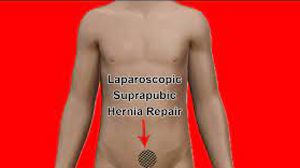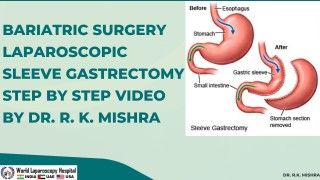Conversion from Sleeve Gastrectomy to Roux-en-Y Gastric Bypass Unleashes New Possibilities
Add to
Share
1,022 views
Report
1 year ago
Description
Explores the transformative journey of individuals who have undergone the conversion from sleeve gastrectomy to Roux-en-Y gastric bypass. Discover how this surgical procedure offers a renewed chance for sustained weight loss and improved health outcomes. Witness firsthand the stories of individuals who have embraced this conversion as a means to overcome weight loss plateaus or address complications, unlocking a new chapter in their weight loss journey. Experience the profound impact of this procedure as it opens up new possibilities for long-term success and empowers individuals to regain control of their health and well-being. Sleeve gastrectomy has gained popularity as a primary bariatric procedure due to its effectiveness in promoting significant weight loss. However, in some cases, patients may face challenges such as weight regain, inadequate weight loss, or the emergence of complications over time. The conversion from sleeve gastrectomy to Roux-en-Y gastric bypass offers a viable solution to overcome these hurdles and provide renewed hope for patients seeking long-term success. The conversion procedure involves the reconstruction of the gastrointestinal anatomy to create a small pouch similar to that in the original gastric bypass. By rerouting the digestive system, the conversion optimizes the restrictive and malabsorptive elements, synergistically enhancing weight loss and metabolic changes. One of the significant advantages of converting to Roux-en-Y gastric bypass is its ability to address weight regain. This can occur due to the gradual dilation of the sleeve over time or inadequate restriction. By converting to Roux-en-Y gastric bypass, the procedure reestablishes a smaller stomach pouch, reinforcing the feeling of fullness and reducing the capacity for food intake. Additionally, the bypassed portion of the small intestine promotes malabsorption, aiding in further weight loss. In cases where complications arise after sleeve gastrectomy, such as severe acid reflux, persistent nausea, or inadequate resolution of obesity-related comorbidities, conversion to Roux-en-Y gastric bypass can offer relief and improved health outcomes. The diversion of food away from the esophagus and the alteration in digestive processes can alleviate these complications and provide individuals with a renewed sense of well-being. The benefits of the conversion extend beyond weight loss. Studies have shown that Roux-en-Y gastric bypass often leads to better resolution or improvement of obesity-related comorbidities such as type 2 diabetes, hypertension, and sleep apnea. These improvements in metabolic health contribute to an enhanced quality of life, reduced risk of cardiovascular events, and an overall increase in life expectancy. It is important to note that the decision to undergo the conversion from sleeve gastrectomy to Roux-en-Y gastric bypass is a highly individualized one. A thorough evaluation of the patient's medical history, previous weight loss outcomes, and current challenges is crucial. A multidisciplinary team, including bariatric surgeons, nutritionists, and psychologists, collaborates to ensure that patients receive comprehensive preoperative assessments and postoperative care, enabling them to make informed decisions and achieve optimal results. As with any surgical procedure, there are potential risks and complications associated with the conversion. These can include infection, bleeding, anastomotic leaks, and nutritional deficiencies. However, with proper patient selection, meticulous surgical technique, and ongoing postoperative monitoring, the risk of complications can be minimized, and patients can experience significant benefits. In conclusion, the conversion from sleeve gastrectomy to Roux-en-Y gastric bypass represents a transformative step for individuals facing challenges after sleeve gastrectomy. This procedure unleashes new possibilities by addressing weight regain, resolving complications, and providing enhanced metabolic outcomes. By combining the restrictive and malabsorptive elements of Roux-en-Y gastric bypass, patients can experience sustained weight loss, improved health, and a renewed sense of well-being. Through careful patient evaluation, comprehensive multidisciplinary care, and ongoing support, the conversion from sleeve gastrectomy to Roux-en-Y gastric bypass offers hope and empowerment for individuals on their weight loss journey. It is a testament to the ever-evolving field of bariatric surgery and the dedication of medical professionals to continuously improve patient outcomes. Furthermore, the conversion from sleeve gastrectomy to Roux-en-Y gastric bypass highlights the importance of personalized care and tailored treatment approaches in the field of bariatrics. Each individual's journey is unique, and the decision to undergo conversion should be made in collaboration with a knowledgeable healthcare team that considers the patient's specific circumstances, goals, and challenges. Patients who undergo this conversion embark on a transformative path that goes beyond physical changes. The procedure offers an opportunity for individuals to regain control over their health, improve self-esteem, and enhance their overall quality of life. It can provide a renewed sense of hope and motivation, inspiring patients to adopt healthier habits, engage in regular physical activity, and make long-term lifestyle changes that support their weight loss journey. It is essential to recognize that the conversion from sleeve gastrectomy to Roux-en-Y gastric bypass is not a quick fix or a standalone solution. It requires a commitment from patients to actively participate in their own well-being by following dietary guidelines, attending follow-up appointments, and embracing ongoing support from healthcare professionals and support groups. Through this collaborative effort, individuals can maximize the benefits of the conversion and achieve long-term success. In conclusion, the conversion from sleeve gastrectomy to Roux-en-Y gastric bypass offers new possibilities and transformative outcomes for individuals who have faced challenges after sleeve gastrectomy. This procedure provides a pathway to sustained weight loss, resolution of complications, and improved metabolic health. By tailoring treatment approaches and considering each patient's unique circumstances, medical professionals can empower individuals to regain control over their health, improve their overall well-being, and embark on a journey of transformation. The conversion from sleeve gastrectomy to Roux-en-Y gastric bypass stands as a testament to the ongoing advancements in bariatric surgery and the unwavering commitment to helping individuals achieve their weight loss goals and lead healthier, happier lives.
Similar Videos






